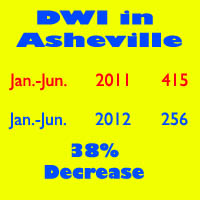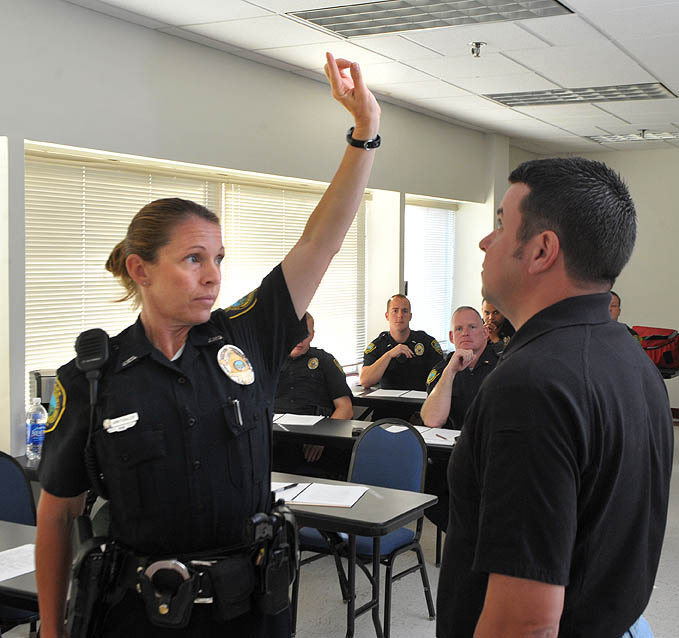It’s raining hard in Asheville. Parking between the police cars in the lot, then wading across to the Traffic Safety Unit office in West Asheville is a chore. Inside, however, it’s warm and dry as Sgt. Curtis Jones checks the weather on his computer. “We can really hear the rain in here with this flat metal roof,” he says. “It reminds us of what’s going on out there.”
Walking back to the unit’s workroom, we get another reminder of what’s going on out there. Officer Ann Fowler has just returned from working an accident involving injuries. Her dark-blue uniform pants are still wet. But the whole time we’re sitting and chatting about statistics, she’s listening to the radio and watching the dispatch screen on her laptop — keeping an eye out for other traffic mishaps.
“A reportable accident is [one] with more than $1,000 in property damage, or personal injury of any kind,” Fowler explains. “We average around 11 (reportable accidents) a day here in the city — not quite one an hour, but we never know when that hour is.”
 |
| APD can point to a significant decrease in DWI over the same year period this year. |
In the Asheville Police Department, patrol officers take most of the accident reports; the six-member traffic unit mainly provides training and expert backup in more difficult cases. Increasingly, it’s also serving as a broader resource, training police officers, sheriff’s deputies and state troopers from smaller departments across the region. “It’s a lot more cost-effective to have someone drive up to Asheville for a day than have to go to Raleigh for the same training or recertification,” notes Jones.
Fowler is one of APD’s certified instructors in standard field sobriety testing and drug-impaired driving detection. In a classroom at A-B Tech’s Enka campus, she trains and recertifies officers from all over Western North Carolina. A recent class included officers from Buncombe, Haywood and Madison counties plus Fletcher.
“Our approach to traffic enforcement is a little different,” Jones explains. “We train patrol officers to recognize traffic issues and deal with them, rather than have many officers doing nothing but traffic enforcement. We have an aggressive radar program, and two of our officers are consistently among the top DWI arresting officers in the entire state — while doing their regular patrol duties.”
DWI numbers, he continues, “are down, we think due to our aggressive enforcement and prosecution of DWI cases here in Buncombe County. This is not the place you want to drive around intoxicated. We don’t lose many cases, and our officers are up to speed on how to handle these cases and get convictions,” says Jones.
Many people, cautions Fowler, don’t realize that “Driving on prescription medication [falls under] the same law as driving drunk: Impaired means impaired, no matter the cause. We get lots of senior citizens screaming at us they have prescriptions, so they are not impaired. Not true. Not true at all”




Before you comment
The comments section is here to provide a platform for civil dialogue on the issues we face together as a local community. Xpress is committed to offering this platform for all voices, but when the tone of the discussion gets nasty or strays off topic, we believe many people choose not to participate. Xpress editors are determined to moderate comments to ensure a constructive interchange is maintained. All comments judged not to be in keeping with the spirit of civil discourse will be removed and repeat violators will be banned. See here for our terms of service. Thank you for being part of this effort to promote respectful discussion.